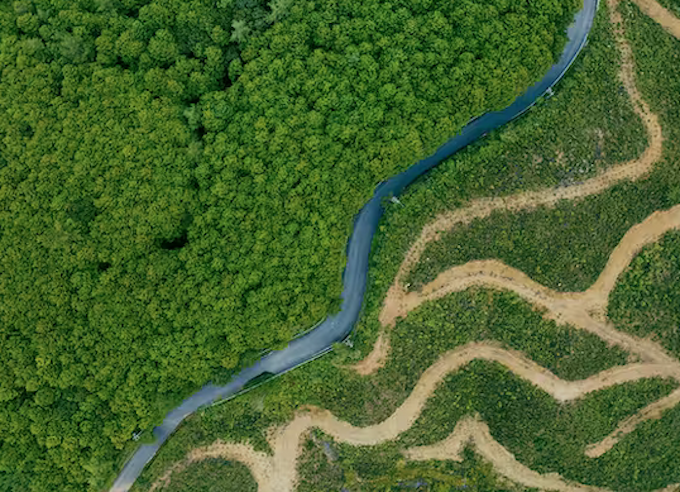
ANALYSIS: By Mike Joy, Te Herenga Waka — Victoria University of Wellington and Phoebe Barnard, University of Washington
As the world grapples with multiple ecological crises, it’s clear the various responses over the past half century have largely failed. Our new research argues the priority now should be addressing the real driver of these crises — our own maladaptive behaviours.
For at least five decades, scientists have worked to understand and document how human demands exceed Earth’s regenerative capacity, causing “ecological overshoot”.
Those warnings of the threats posed by the overshoot’s many symptoms, including climate change, were perhaps naive. They assumed people and governments would respond logically to existential threats by drastically changing behaviours.
- READ MORE: Critics of ‘degrowth’ economics say it’s unworkable – but from an ecologist’s perspective, it’s inevitable
The young researchers in the 1970s who published the Limits to Growth computer models showed graphically what would happen over the next century if business-as-usual economic growth continued.
Their models predicted the ecological and social disasters we are witnessing now.
Once people saw the results of the research, the authors believed, they would understand the trajectory the world was on and reduce consumption accordingly. Instead, they saw their work dismissed and business-as-usual play out.
The behavioural crisis
During these past five decades, there have been innumerable reports, speeches and data, ever more strident in their predictions. Yet there has been no change in the economic growth trajectory.
The first world scientists’ warning to humanity was published in 1992 as an open letter, signed by hundreds of scientists and detailing how human activities damage the environment.
A second notice in 2017, which thousands of scientists signed, included this stark statement:
If the world doesn’t act soon, there will be catastrophic biodiversity loss and untold amounts of human misery.
Many of those working in the natural sciences felt they were doing what they could to prevent this “ghastly future” unfolding. Researchers even laid out a framework of actions for the world to take, including human population planning and diminishing per capita consumption of fossil fuels, meat and other resources.
But few meaningful changes have been achieved.
By taking a different perspective, our research explores intervention points and demonstrates the behavioural roots of ecological overshoot. It is a collaboration with behaviour-change strategists in the marketing industry, and grew partly from their disaffection with the outcomes of their work on human and planetary health.
Behind the research sits a stark statistic: the wealthiest 16 percent of humanity is responsible for 74 percent of excess energy and material use. This reflects a crisis of human behaviour. It is the outcome of many individual choices involving resource acquisition, wastefulness and accumulation of wealth and status.
Some of these choices may have served humans well in the evolutionary past. In a modern global economy, however, they become maladaptive behaviours that threaten all complex life on Earth.
The ‘growth delusion’
Current interventions to restrain climate change — just one symptom of ecological overshoot — are failing to curb emissions. Last year, global emissions of carbon dioxide reached a new high, partly as a result of air travel rebounding after the covid pandemic.
We argue that trying to fix an accelerating problem with slow solutions is itself the problem. Instead, we need to treat the root causes of ecological overshoot and its behavioural drivers, rather than be distracted by patching up its many symptoms.
Japanese solar power system operator Advantec signed a memorandum of understanding with the Philippines on Thursday to supply renewable energy to factories, aiming to eventually set up emergency backup power systems in the country.https://t.co/SVMeveVCXS
— Bong Onli (@GrowlHarhar) October 17, 2023
A prime example is the current “solution” to climate change through a full transition to renewable energy systems. This simply replaces one form of energy with another, but doesn’t address the rising demand for energy that enabled overshoot in the first place.
Such interventions are incremental, resource intensive, slow moving and flawed: they aim to maintain rather than manage current levels of consumption. This “growth delusion” offers a false hope that technology will allow human society to avoid the need for change.
An emergency response
To overcome the critical disconnect between science, the economy and public understanding of these issues, an interdisciplinary response will be needed.
Paradoxically, the marketing, media and entertainment industries — central to the manipulation of human behaviours towards resource acquisition and waste — may offer the best way to reorient that behaviour and help avoid ecological collapse.
Logically, the same behavioural strategies that fuelled consumerism can do the reverse and create the necessary desire for a stable state.
Understanding the many dimensions of the behavioural crisis, including the influence of power structures and vested interests in a market economy, is crucial. Defusing and even co-opting those forces to reform the economy and reverse the damage is the challenge.
It will require a concerted multi-disciplinary effort to identify the best ways to produce a rapid global adoption of new norms for consumption, reproduction and waste. The survival of complex life on Earth is the goal.
This research was led by Joseph Merz of the New Zealand-based Merz Institute and its Overshoot Behaviour Lab. Other authors include energy researcher Chris Rhodes; economist and ecologist Bill Rees; and behavioural science practitioner and vice chair of advertising company Ogilvy, Rory Sutherland.![]()
Mike Joy, senior researcher; Institute for Governance and Policy Studies, Te Herenga Waka — Victoria University of Wellington and Phoebe Barnard, affiliate full professor, University of Washington; research associate, African Climate & Development Initiative and FitzPatrick Institute, University of Cape Town; founding CEO, Stable Planet Alliance, University of Washington. This article is republished from The Conversation under a Creative Commons licence. Read the original article.














































